On this episode of “Religion on Campus,” sisters Lauren Miller and Olivia Miller sit down with the internal vice president of Bruin Hindus, Keshav Shukla, to explore UCLA’s Hindu student organization. Discover how this young club fosters community through Seva, Dharma discussions and cultural celebrations.
Lauren Miller: Welcome to Religion on Campus. I’m Lauren Miller.
Olivia Miller: And I’m Olivia Miller. We’re sisters and UCLA Bruins exploring faith at our university.
LM: From ancient traditions to modern practices, join us as we uncover the spiritual side of UCLA life.
LM: Today we are here with Keshav Shukla, the internal vice president of Bruin Hindus. Keshav offers Olivia and I a unique perspective on how Hindu students are creating community, practicing their faith and sharing their culture on campus. From organizing major festivals like Diwali to fostering spiritual growth through Dharma discussions, Keshav gives us an inside look at the vibrant world of Bruin Hindus
OM: Welcome to Religion on Campus, and thank you so much for joining us. So to start off, I just want to ask you, what is your club and what is your role in this club?
Keshav Shukla: For sure. So we’re Bruin Hindus. We are a student registered student organization that started very recently, actually, in 2021. We are an organization for Hindu students on campus as well as friends and allies or anyone who wants to learn about Hinduism, practice it or basically engage with the community. We hope to create a safe and inclusive space for students at UCLA to build community, advance spiritually, as well as engage in community service – or Seva as we call it in Hinduism, which is one of our core principles. This is my second year on the executive board for the club. I currently serve as internal vice president and last, last year I served as director of finance.
OM: Wow. So about Seva, how exactly does Bruin Hindus engage in that concept? And could you just share about what the community service that you all have participated in?
KS: Sure. So we actually have different committees within our leadership team, and we started a Seva committee, or a committee specifically to conduct community service projects, very recently actually. So I think one of our biggest projects so far have been collaborating with the ISKCON Temple, which is in Culver City. You might have heard about ISKCON or the Hare Krishna movement. And the temple does a Sunday feast every Sunday afternoon, where they serve lunch to all of their visitors, and members of our team have gone on Sundays and helped out in distributing food. So that’s definitely one of the biggest ways in which our Seva committee has conducted community service projects. We do have some exciting ones coming up too this year. We hope to engage with the broader LA community with beach cleanups and more volunteering at different places. So it’s fairly new, I would say, but we’re definitely planning to expand and grow on that.
OM: Oh, that’s so exciting. And I did notice on the Bruin Hindus Instagram page, there was advertisements for the Dharma discussions. So what is this concept, and how do these discussions take place?
KS: Right. So Dharma discussions are basically weekly or usually bi-weekly discussions where we would talk about a particular concept in regards to Hinduism and how it kind of relates to student life at UCLA usually. So in the past we’ve had discussions on hot yoga versus actual traditional yoga and then music and Hinduism, how art relates to Hinduism. So it’s a great way for the community to kind of engage in open dialogue with different members and also kind of learn more about the texts and the ancient knowledge that we take from. And we also collaborate with – we invite our Hindu chaplain at UCLA to give talks, and his talks are definitely more in-depth about the different schools within Hinduism and their philosophies. So our attendance has been… always fluctuates throughout the quarter, I guess, depending on people and their midterms and things like that. So I think overall, it would be fair to say around 15, 20 people would attend on average. I think definitely the ones that are led by our Hindu chaplain because he has so much knowledge and everyone loves to hear him. He’s a phenomenal lecturer. He delivers content really, really well. He explains things really, really well. So I think definitely the ones that are led by him do attract the most crowd, I think, and especially topics which are kind of inquisitive in nature, like what happens when we die according to Hinduism. So I think that’s one that we had. And then we also did one, which was our very first one, that was a student-led Dharma discussion by one of our club members, and that was kind of discussing the differences between western yoga and the concept of yoga in the West and how that’s perceived versus traditional yoga. So that also was quite popular.
OM: Wow. And I wanted to ask more about the chaplain. So the Hindu chaplain is this person—so they’re not, they don’t work specifically at UCLA, Bruin Hindus, but are they more of a figure who comes into multiple schools and lectures and teaches?
KS: That is correct. So our chaplain, Swami Medhananda, he serves as the Hindu chaplain for UCLA as well as USC. So he delivers lectures and discussions both here and at USC. So yes, you’re correct.
OM: And during the students’ time at university, it’s definitely challenging navigating faith and academic responsibilities. So what are some common struggles or questions that students bring to you at the Bruin Hindus board or to the Hindu chaplain? And what resources do you provide for the students struggling with their faith?
KS: Right. So I think we do offer or we are trying to offer more one-on-one office hours with our Hindu chaplain for anyone who wants to come in and ask him questions about anything basically that’s on their mind. We try to – I think the way we’ve approached our events have always been centered around festivities and celebrations. So we kind of have food and music and all of that at the main Hindu festivals that are throughout the year celebrated. And through that, we’re able to kind of attract people and help them learn more about why these festivals are celebrated and the meaning behind that. And yeah, so I think those are the resources that we try to provide.
OM: And being the vice president, what has been your most rewarding experience to this position?
KS: I think as internal vice president, I really enjoy engaging with our leadership team and making sure we are a strong, cohesive team. And that is something I really like. And so my primary responsibilities are recruiting people onto the leadership team, making sure weekly meetings run smoothly, handling logistics and technology, like Slack, Google Drive, all of that. And I think for me, what’s most rewarding is seeing all of our committees just put on the beautiful work that they do and how that’s impacting the broader UCLA community. And when people come to us and say that, “Wow, the event that you put on made me feel like I was back home with my family,” just hearing that is, I think, the most rewarding thing.
LM: So next, I am really curious to learn more so about your social events, and I also saw too, especially on the Instagram page, you guys do a lot of collaborations with many different UCLA organizations such as the South Asian LGBT Group and the South Asian Student Union. How would you say have these collaborations been meaningful to the Bruin Hindu members, and in what ways have they advanced resources and support for the Bruin Hindu community?
KS: For sure. So I think diversity and inclusion are a big part of Bruin Hindus, and we are really, really trying to represent and reach out to the minority communities and communities that have been historically marginalized within the larger Hindu community. Talking about events that we’ve had, we usually do the Diwali, which is usually in October and November, basically in the fall quarter, is our biggest flagship event. And over the past few years, it has attracted usually around 1,000 attendees each year. So it’s huge and it’s so much fun – a lot of work from our end, but very, very rewarding. We usually collaborate with our dance teams on campus, like the South Asian dance team, so our Bhangra group, our Raas team and the South Asian acapella group. So they come in and perform at our Diwali event. So we really love those collaborations as well. And then we’ve in the past, like you said, collaborated with the South Asian LGBTQ+ organization on campus. And we’ve had a queer Hindu panel, which basically talked about the intersectionality of queer and Hindu identities. And we also did a Holi event to celebrate the festival of color in spring with them. So overall, I think it’s been a great way to grow the community larger to people from both of the clubs to meet each other and expand. Yeah.
LM: Wow, that’s amazing and a lot of the people – kind of to follow up with this question – a lot of the people in the Bruin Hindus group, are they also in these other organizations such as the South Asian LGBTQ+ and the South Asian Student Union group? Do you have a lot of members within the Bruin Hindus group that are a part of those organizations as well?
KS: So, funny in fact, I’m the president of the South Asian LGBTQ+ community club. And yeah, one of our other board members, she recently graduated. She was also on that team with me. So yes, definitely, there is definitely a cross connect within members for sure.
OM: I want to ask a question specifically about Bruin Hindus. This is just more of a general question, but does Hinduism – is it, sort of, would you define it as an umbrella term for multiple different kinds of practices, or is it more specific?
KS: Yeah, I think it definitely is a very large community and we have, they often say that Hinduism is not a monolith. So I think one of the core principles of Hinduism is that there’s so many different paths that would ultimately lead to the same reality or understanding of the divine. So yes, you’re definitely correct. And I think that’s one thing that I really like about Hinduism is the fact that you get to choose what you believe in and who you believe in, whatever form of the divine that you connect with the most.
LM: Now next, I am curious to find out a little bit more of the professional side. So as far as professionally, how does the Bruin Hindus community professionally support Bruin Hindus in their academic and professional endeavors?
KS: That’s a great question. Our first year – sorry, our second year when we were founded, we actually held a Bruin Hindus networking night event where we basically talked about how work relates to Hinduism and then it also gave attendees the opportunity to network with professionals who practice Hinduism in various fields. So we had doctors, we had professors, we had engineers, lawyers, all from basically all across California, maybe even the country, to come to the event and basically network with Bruins. And we’re also developing a Hindu alumni network. Our outreach team is hard at work on that. So that would allow all of UCLA students to connect with Hindu alumni for professional engagement. Correct. So it’s usually once a year – we were not able to do it last year – but we’re really, really hoping to bring it back this year during the winter quarter once we’re done with our big Diwali event.
LM: Now, I kind of want to move onto this. I think this is a very important question. There can be a lot of misunderstandings about the role of religion, particular being a Hindu at UCLA. What are some common misconceptions or stereotypes that the Bruin Hindus community has worked to dispel?
KS: Right. I think a lot of them stem from this intermixing of religion and culture. So I think one of the most common ones is about the caste system and the fact that Hinduism supports a discriminatory caste system, which is not true at all, because the caste system was basically something that was a part of the culture or society at that time back in India or South Asia. And Hinduism, no Hindu text particularly, has this kind of discrimination amongst castes. So I think that’s definitely one of the biggest ones and something that I kind of touched upon just a couple of minutes ago, the fact that we have millions of gods and we’re idol worshippers. So I think that is definitely a very common myth. And like I said, it’s basically this understanding that there are, yes, there are multiple paths, but ultimately, it’s all leading to the same divine reality. And if we are worshiping idols, it’s basically because we believe that it is a physical representation of the divine and would help us focus on prayer and meditation. So yeah, those are some of the ones that I think I’ve encountered the most frequently.
LM: And what have you done in that specific instance you said you’ve encountered those stereotypes and misconceptions? Do you have a lot of conversations with people? How do you particularly and also the Bruin Hindus community work to dispel those misconceptions?
KS: For sure. I think communication is the way to do this. So our Dharma discussions have been a big help for us to dispel some of these myths, especially because like I said, our Hindu chaplain is incredible. He has so much knowledge and is an incredible lecturer. He really helps people understand these concepts better. And we also take to social media through our Instagram to try to communicate with the larger community about misconceptions. And all of the events that we put on, like we celebrate Hindu New Year in spring, we do our Diwali event, our networking nights. So I think these are all ways for people to engage with not only our chaplain but also our team. And we would definitely be more than happy to help answer any questions that people might have to the best of our capacity to our knowledge. Yeah.
LM: And then my last question that I have for you is: do you have any words of wisdom for potential new Bruin Hindus members and for our listeners who are interested in learning more about your organization?
KS: Well yeah, for sure. I think it’s just been so, so rewarding, like I said before, to help serve a community that hasn’t always been represented the way it should be represented on campus at UCLA. So just building and expanding this strong diverse community is very, very rewarding, but it’s also a lot of fun. And I’ve met some of my closest friends through Bruin Hindus. So I think it’s a good mix of having fun, enjoying yourself, but then also a deeper meaning with advancing spiritually or trying to learn more about the religion itself. So yes, we recruit every fall and usually during the winter as well. So for anyone who’s interested, they can follow us on our Instagram @bruinhindus. And we’ll definitely keep everyone updated about our recruitment process and cycle timeline, all of that. And we also usually table at the Enormous Activities Fair. So you can also catch us at the EAF. We have five committees, so we have events that is typically responsible for planning our large events, media, handling our social media team, email lists, finance for all of our financial applications and fundraisers, our Seva committee for community service and our Dharma committee for organizing Dharma discussions. Typically, we’ve recruited into events, finance and media in fall and then Seva and Dharma in the winter, but we might make changes to that this year. And we typically release applications, which is basically like a short Google form for people to just tell us why they’re interested in joining around week two, I would say, of fall quarter. Things might change, but that’s usually the tentative time. And then we invite a certain number of people for interviews to kind of get to know more about them, their interests, their passions, all of that. And then we basically place them into the committees that we think are the best fit for them.
LM: Oh, that’s sweet, thank you.
OM: Thank you!
LM: Awesome!
KS: Thank you!
OM: Religion on Campus is brought to you by the Daily Bruin Podcasts. You can listen to other episodes of the show on dailybruin.com or Spotify, SoundCloud or Apple Podcasts, and transcripts are available.
OM: My name is Olivia Miller.
LM: My name is Lauren Miller. Thank you for listening.
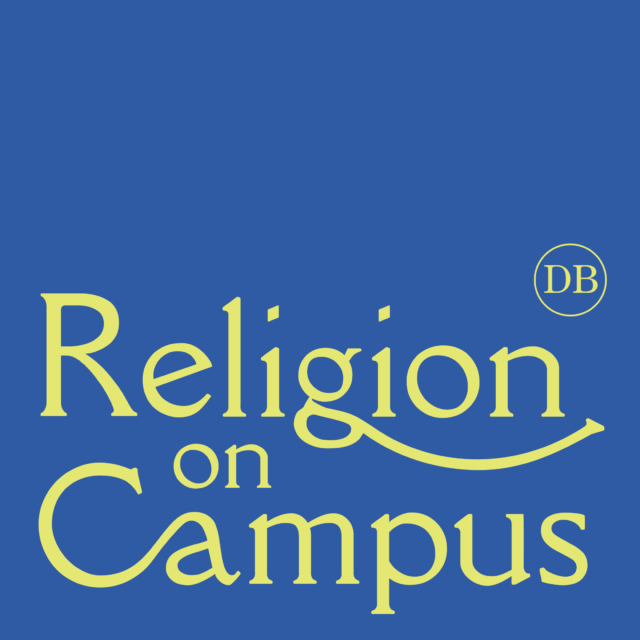

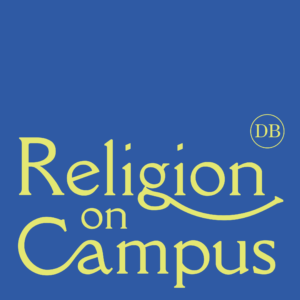
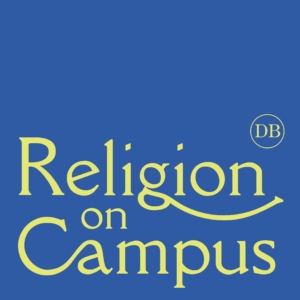
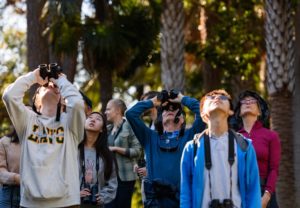
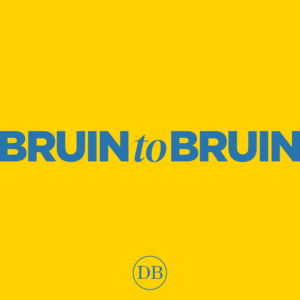
Comments are closed.